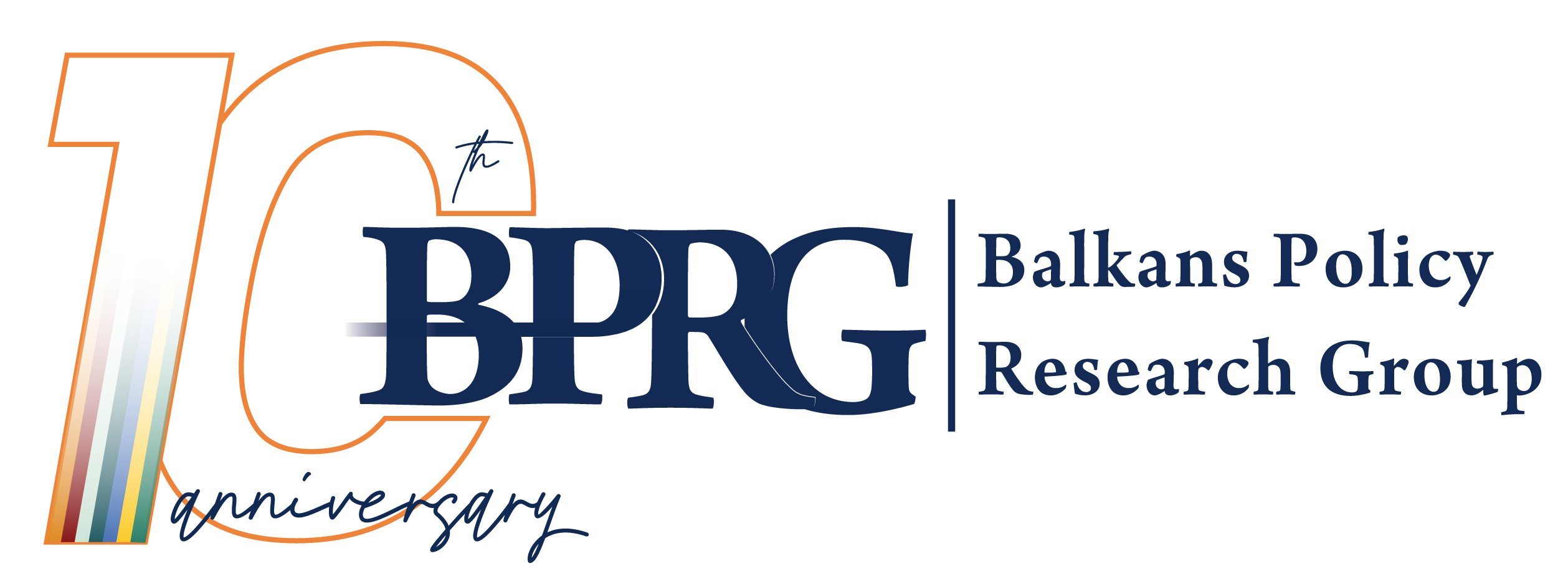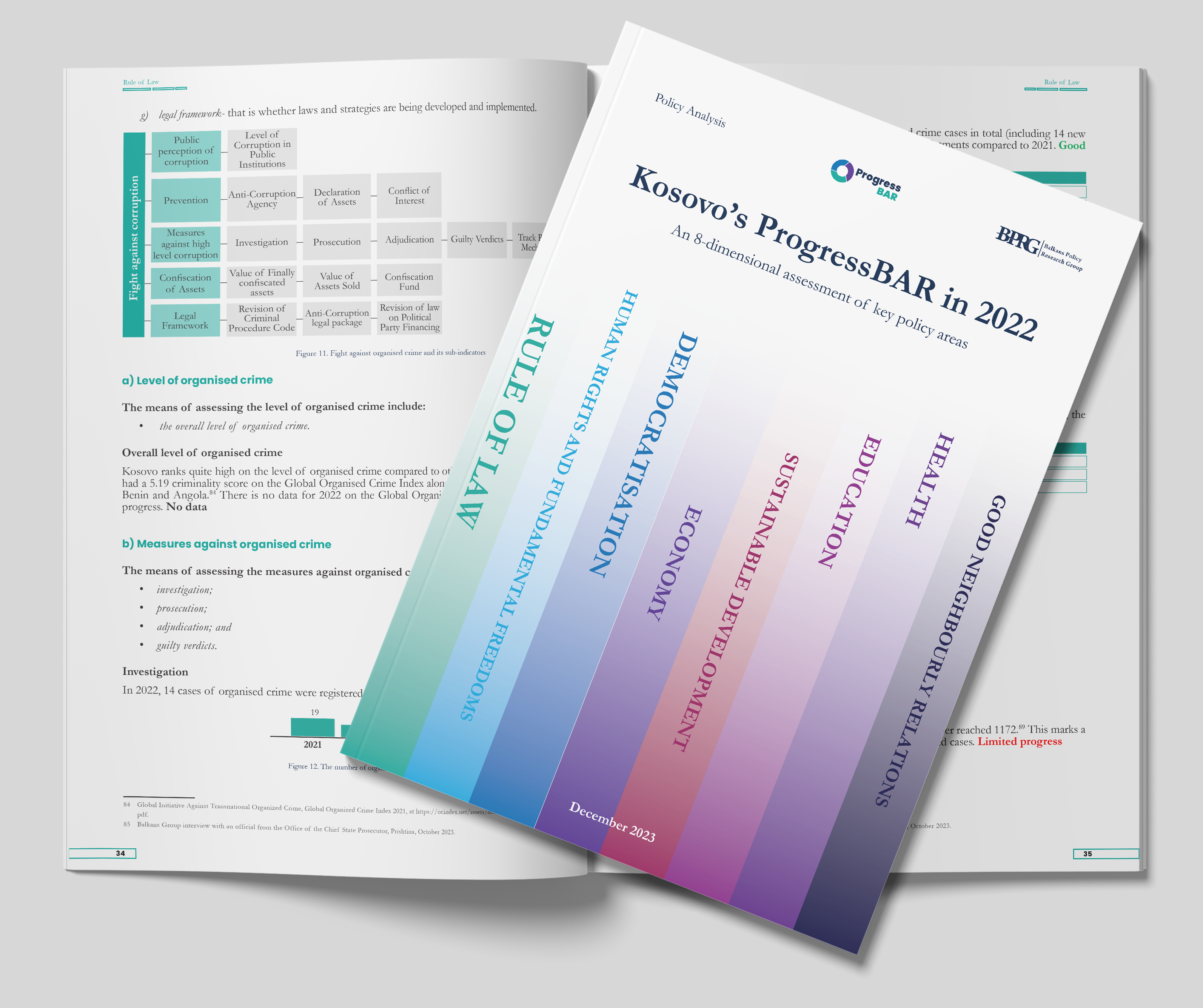Balkans Group’s new policy analysis Kosovo’s ProgressBAR in 2022: An 8-dimensional assessment of key policy areas, evaluates Kosovo’s development in critical policy areas. It highlights progress in the rule of law, democratic principles, energy, and international cooperation, along with efforts toward economic reforms. However, significant challenges remain in economic development, poverty reduction, education alignment with labour markets, and efficiency of the functioning of institutions. Judicial efficiency, corruption combat, organised crime, human rights, and environmental sustainability need substantial improvement and strategic action.
Rule of Law
Kosovo made some progress in enhancing the Rule of Law, with positive developments in access to justice, international cooperation, and transparency. Efforts to improve judiciary accountability and fight against corruption and organized crime saw legal and strategic improvements, including revisions to the Criminal Procedure Code and the adoption of laws aimed at preventing corruption and controlling assets.
Human Rights and Fundamental Freedoms
Progress in this area was limited, with some improvement in civil liberties but no significant advances in freedom of expression, religion, or association. Kosovo made limited progress in protecting economic, social, and cultural rights, with existing laws not fully implemented.
Democratisation
Limited progress was observed in democratisation, with variations in media freedom, civil society, political stability, elections, and public administration. Despite some improvements in media freedom and public administration, challenges remain, including political influence and lack of data on violence and terrorism.
Economy
Economic development saw limited progress, with an increase in GDP growth and per capita, but only a marginal increase in government revenues and a worsening trade balance. Structural business statistics showed limited progress, with some alignment with the EU Acquis.
Sustainable Development
Progress was limited, especially in energy and environment. A significant decrease in electricity imports and commercial losses was noted, but reliance on coal persisted, and air quality issues remained a health threat.
Education
Limited progress was noted in education, with increased spending on research and infrastructure but challenges in higher education enrollment and support for children with disabilities.
Health
Healthcare saw limited improvements in infrastructure and equipment, but access to care, functionality of health information systems, and quality of care showed no significant progress, with corruption still perceived as a problem.
Good Neighbourly Relations
Some progress was made in improving relations with Albania, Montenegro, and North Macedonia through agreements and enhanced cooperation mechanisms. However, formal relations with Bosnia and Herzegovina remained underdeveloped, and minimal progress was made in the Kosovo-Serbia dialogue.
This report highlights challenges in data collection due to lack of aggregated data, unresponsiveness of institutions, and delayed data publication.
To address these challenges, the Balkans Group recommends better inter-institutional cooperation, increased responsiveness, and improvements in data management and publication routines.
This publication is supported by the Norwegian Ministry of Foreign Affairs.
The views and analysis in this publication are solely of the Balkans Group and do not reflect the views of the donor.
Read the full report HERE.



